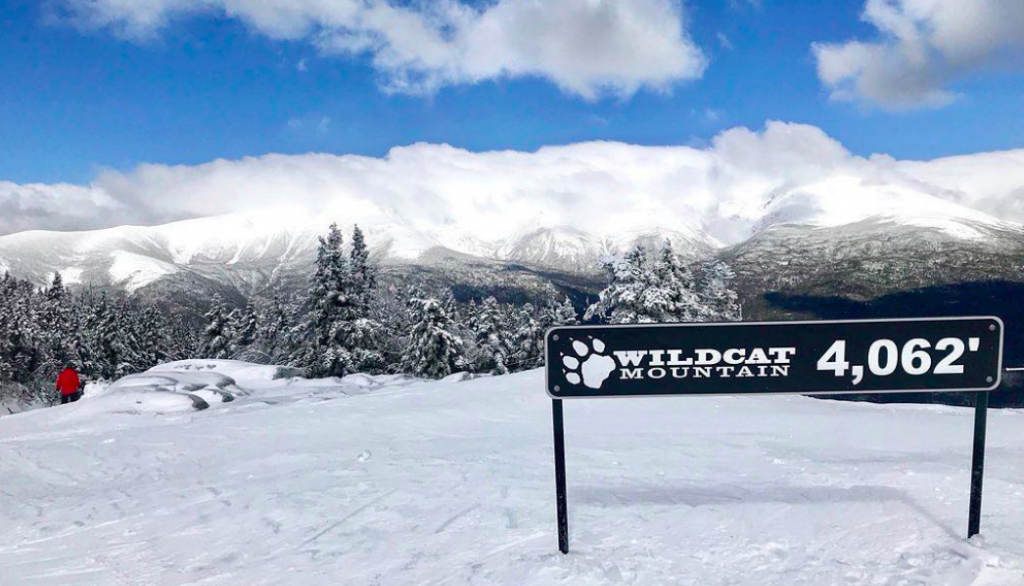Helped by strong appeal of the company’s Peak Pass and late winter weather that kept some of the company’s Northeast resorts open into April, Peak Resorts reported revenues rose 9.3 percent in the fourth quarter ended April 30.
Sales reached $56.0 million in the period. The growth benefited from a 11.4 percent rise in food and beverage revenue, a 9.9 percent increase in ski instruction revenue and 9.6 percent growth in lift ticket and tubing revenues, as well as 22.4 percent growth in other revenue. EBITDA grew 4.0 percent to $21.5 million. Net income increased 8.0 percent to $9.7 million.
For the full year, revenues reached a record $131.7 million, up 6.8 percent. EBITDA eased 4.5 percent to $25.6 million. Net income came to $1.35 million versus $1.24 million a year ago.
“Our financial performance in the fiscal fourth quarter marked the end of what was a very successful record fiscal year for Peak Resorts,” said Tim Boyd, president and CEO, on a conference call with analysts.
Boyd said a return to cold winter weather in March extended the Northeast ski season, with several of the company’s resorts remaining open well into April. In fact, the 2017-2018 ski season comprised 145 operating days, the company’s longest ever.
Said Boyd, “If investors take one thing away from today’s call, it should be this: fiscal 2018 and the ‘17-’18 ski season provide added proof that Peak Resorts can successfully overcome challenging and volatile operating environment with enough of our Peak Pass and our ongoing investments in mountain infrastructure to deliver a high level of customer service across our on and off mountain experiences.”
Among the company’s resorts, Mount Snow, in West Dover, VT, skier visits for the 2017/2018 ski season were up 14 percent year-over-year compared to the roughly 1.2 percent increase seen across the state, according to the Vermont Ski Areas Association. The resort benefited from improved snowmaking capabilities. Said Boyd, “You can clearly see that Mount Snow took significant market share this winter, despite the challenges presented by the volatile weather.”
The opening of a new lodge at Carinthia this fall is expected to drive further increases in visitation to support gains at the company’s flagship resort.
Across the balance of the Northeast, the strong appeal of the regional Peak Pass, as well as the experience at the company’s resorts, enabled Peak Resorts to outperform the broader industry “in a tough season where extreme weather variability impacted conditions both positively and negatively.”
At New York’s Hunter Mountain, the arrival of the largest snowstorm of the year helped drive “great late season conditions,” but heavy, wet snow resulted in the power outages and led to closures for Friday and Saturday in the first weekend of March. Added Body, “Despite these extremes, our Peak Pass kept Northeast performance positive for the fourth quarter and in fiscal year.”
In the Midwest, Peak Resorts had a “very strong” 2017-2018 ski season, including healthy performance in the fiscal 2018 fourth quarter. Said Boyd, “Our mountains benefitted from favorable winter weather after several less-than-stellar years as visitation for the overall Midwest portfolio was up 25 percent over the prior year.”
Boyd said Peak Resorts’ results show that the season pass, while a “very hot topic for the ski industry,” works. He added, “Large conglomerates, both public and private, have driven home a message that a sticky season pass provides upfront cash flow, allowing operators to smooth out financial and operating performance in winters when weather is less-than-favorable. These players have also undertaken a very public arms racing in which they’ve been acquiring mountains and generated partnerships left and right to bulk up their pass offers. Ultimately, we believe our Peak Pass stands alone as an attractive offering to the skier or rider who wants to drive to and explore the mountains of the Northeast. Our Peak Pass comes with the highly compelling price points for guests of all ages and provides them with uncomplicated and unlimited access to our mountain portfolio.”
As already announced in early May, consolidated season pass sales were up 14 percent on a unit basis and 16 percent on a dollar basis through the April 30 early season deadline. The performance included a 47 percent hike in unit sales of its Drifter Pass, an unlimited, unrestricted season pass for 18-to-29-year-olds in the Northeast.
Said Chris Bub, VP and CFO, on the call, “We believe there is room for more than one multi-mountain season pass offering in the Northeast. Our competitors report continued growth in sales of their passes, yet our customers are buying the Peak Pass in greater numbers. We look forward to welcoming our Peak Pass holders to Mount Snow, Hunter Mountain, Jack Frost, Big Boulder, Crotched Mountain, Attitash and Wildcat next season.”
On the expense side, rising labor costs are impacting the bottom line, and some labor shortages were seen in the Northeast. Said Boyd, “We are working with our general managers and their operations teams to ensure that we are strategic in how we manage our human resources and remain disciplined with how we spend this dollar while balancing our goals for a financial performance with our commitment to delivering a superior guest experience. This is going to be a busy summer and fall for us at Peak Resorts, but I am confident that we’re positioning the company for a great 2018-2019 ski season and beyond.”
Photo courtesy Mount Snow
















